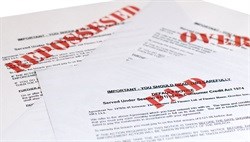Debt collection and flight, fight or freeze concept

Professor Derman used the concept when he gave testimony of Pistorius' profound fear of crime and an explanation of how the only option he had that night was to opt for the fight response. The theory can also be adopted in the debt collection realm to describe how certain individuals respond in the face of debt.
In the 21st century living the capitalist dream at times requires a loan facility which many individuals apply for. Servicing a loan has however proven to be easier said than done as numerous individuals are unable to make payment of monthly instalments for various reasons. This then prompts financial institutions to resort to instructing attorneys to recover the outstanding capital.
Different responses
In the face of debt, a number of debtors opt for the flight response with the hope that attorneys would experience some difficulty in recovering the debt. Other debtors will choose to fight the debt hoping that the capital which is due and payable will be reduced drastically even though they have no defence for defaulting. The last personality trait, freezing, is a response chosen by those that fear litigation. Freezing is detrimental as it would lead to possible loss of valuables such as property which can be attached due to the default in payments.
The scientific notion might be a great mechanism for survival in other areas of life however the same is not true in debt collection. Debtors ought not to flee, neither fight without a defence nor freeze as it would lead to undesirable consequences for them. Upon receipt of a demand letter a debtor should without delay respond to it and request to make a settlement agreement.
Debtors should ensure that after such agreement is made, it is best not to default payment. A default will result in summons being served and later default judgment accompanied by a writ in execution which allows for the debtors property to be attached.
























